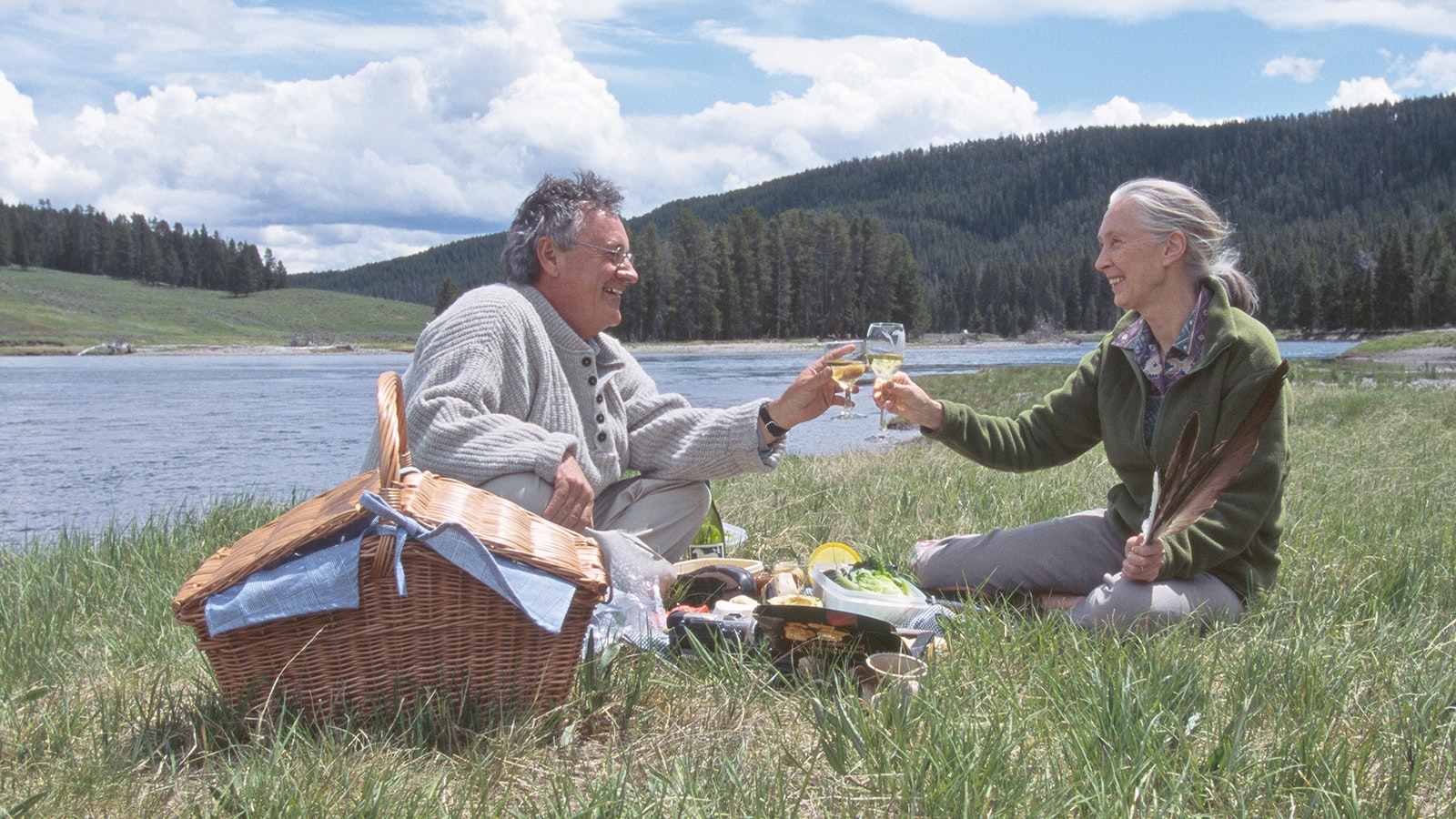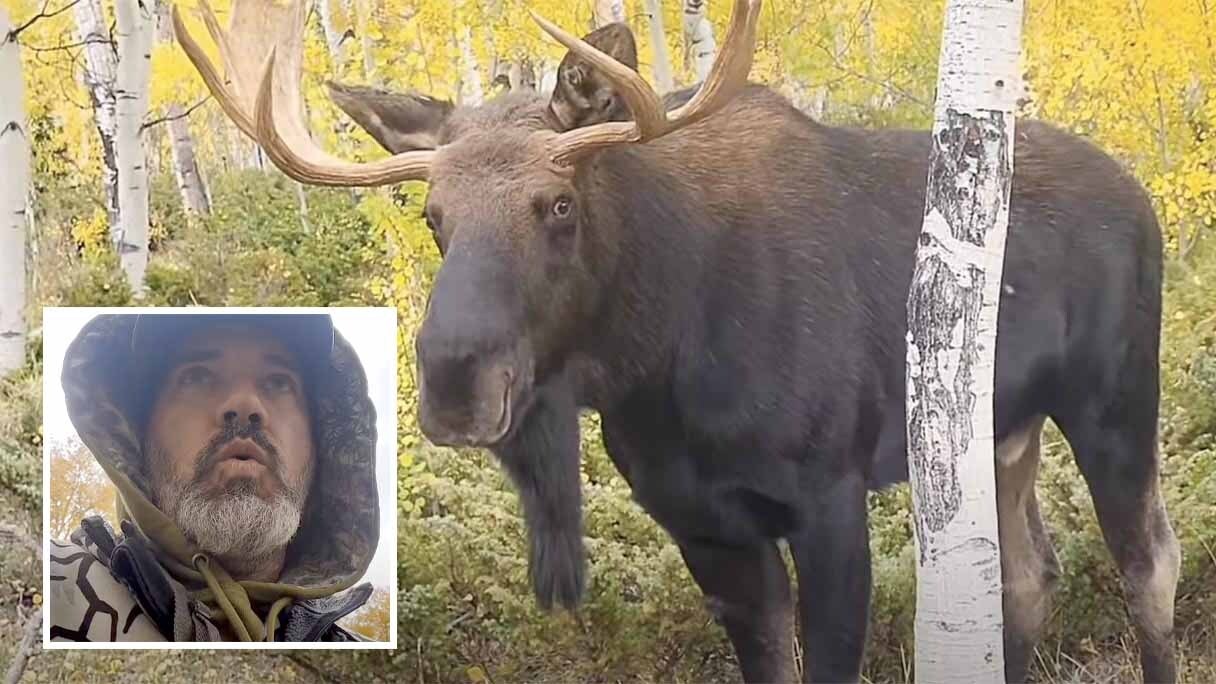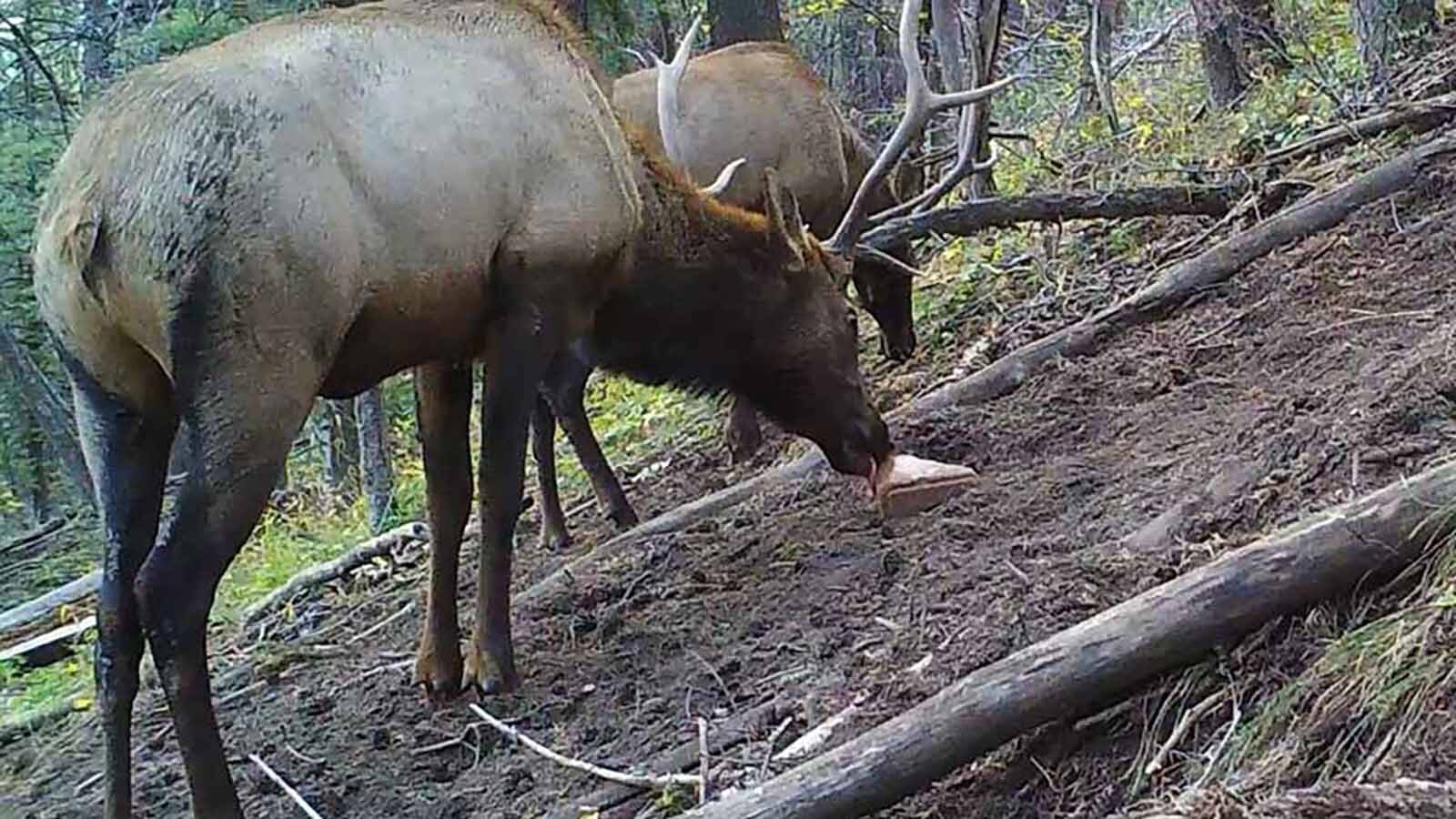Can Wyoming ranchers prevent grizzlies from killing their cattle? Possibly, if they go all-in on Charolais cattle.
That’s what happened last week when a herd of Charolais cattle on a ranch owned by DeBruycker Charolais in Dutton, Montana, decided that a pesky grizzly had to go.
Where most cattle might panic or run at the approach of the apex predator, this herd went on the offensive.
“They’re protective of their babies, as any good mother should be,” owner Brett DeBruycker told Cowboy State Daily.
Rather than running away from the grizzly, the cattle approached the pernicious predator. The grizzly was surrounded and sent running for its life, with dozens of Charolais hot on its tail to ensure it was evicted from the property.
“Charolais tough,” Kesler Martin, DeBruycker's nephew and one of the owners of DeBruycker Charolais, posted on social media. “That bear didn’t stand a chance.”
This behavior is expected for bison, but uncommon for domestic cattle. Could Charolais cattle be the cure for grizzly predation in Wyoming?
Combative Cattle
Charolais cattle, a French breed with roots dating back to the Roman Empire, are a beef breed with a lot going for them. According to the website Homestead on the Range, Charolais are notable for their lean, flavorful meat, rapid growth, adaptability, and excellent mothering instincts.
Bob Wagner, the owner of Wagner Charolais, raised Charolais bulls on a ranch in Nunn, Colorado, just 4 miles from the Wyoming state line. He believes the pugnacious personality of Charolais is “undeserved.”
“I don't think there's a breed that can't produce an unpleasant cow or even worse, an unpleasant bull,” he said. “I'm not sure that you're talking to a typical Charolais breeder, but I’m not sure why they have such a bad reputation.”
Charolais cattle are large. They are one of the heaviest cattle breeds in the world, as a fully-grown cow can weigh up to 2,600 pounds while bulls can reach 3,600 pounds.
Charolais cattle are also perceived as more aggressive than other breeds. Homestead on the Range claims that heifers tend to be “extremely defensive” of their calves, bulls can be aggressive toward each other, and heifers and bulls have been known to charge or injure the hands that feed them.
The DeBruycker Charolais herd certainly demonstrated its tenacity in the face of danger.
Rather than cowering or panicking when confronted with the apex predator of the Greater Yellowstone Ecosystem, the cattle only gave up ground as they pursued the fleeing grizzly.
Wagner hasn’t had any negative experiences with his herd of Charolais cattle. However, he acknowledged that he knows where and when to tread lightly.
“The mothers are super protective,” he said. “When we're calving, I don't take my dogs out with me because the cows are much too protective. You can convince a mother cow to respect the dogs, but it's really not safe for them during calving and, sometimes, for months after.”
DeBruycker’s family has been raising Charolais cattle in Montana since 1963. He also believes their bad reputation is undeserved.
“It’s not accurate at all,” he said. “There's no difference between them and any other breed of cattle when it comes to attitude. They’re very docile.”
Cows And Collies
Wagner and his wife, Jan, take pride in raising “docile” registered Charolais bulls. They switched to Charolais after 30 years of raising Suffolk sheep, and they’re thrilled with the results.
“Charolais are specifically noted for their rate of gain, feed conversion and size,” he said. “Carcass sizes are getting bigger and bigger, and one of the things I’ve heard from feedlot people is that Charolais and Char-cross cattle are that you can feed them to be bigger without losing feed efficiency.”
Wagner said that he earns around half of his annual income from selling his Charolais bulls. Because of their reputation for aggression and overall fussiness, he said he’s “very fussy” about the temperament of each bull.
One of the “secrets” behind the success of Wagner Charolais is Wagner Border Collies. The Wagners raise and sell registered border collies that are trained to be highly effective “cattle dogs.”
“Well-trained dogs are very good at calming down cattle,” he said. “That’s where I think we have an edge over other producers. A huge majority of my bulls go to commercial producers with red or black cows, and everybody's amazed by how easy they are to walk around, bearing in mind that they're still bulls.”
Antiquated And Accurate?
Charolais cattle are not recommended for “beginners” in the beef and ranching industries. However, the video from DeBruycker Charolais demonstrates tangible benefits of the reputation they’ve acquired.
“If they want to get rid of a threat like a grizzly, they will,” DeBruycker said. “They pay attention to dogs, but other breeds of cattle do that, too. They’re protective, but that’s got nothing to do with a bad attitude.”
According to the Wyoming Game and Fish Department, there were 188 grizzly-cattle incidents in Wyoming in 2024. That was over 78% of the total grizzly incidents reported in the state that year.
Ranchers can be reimbursed for their losses to grizzlies, wolves, and other predators, but that hasn’t reduced the tension between man and beast. So, are Charolais a solution or a Golden Calf?
Size might have something to do with it. Charolais cattle have a lot of weight to throw around, so a marauding grizzly is less of a threat to a single cow or bull, let alone an entire herd of protective heifers.
Wagner, who’s on the board of directors for the Charolais Association, strives to breed the most docile Charolais he can. He’s aware of the breed’s bad reputation but thinks it’s become exaggerated over time.
“I'm not sure how much of the original bad reputation was justified, but I think it’s an antiquated impression,” he said. “How you raise them can certainly affect the disposition, and we're conscious of that, but I think there's also been powerful selection for good disposition.”
Nevertheless, Wagner wasn’t surprised to see the DeBruycker Charolais aggressively evict a grizzly from their rangeland in Montana. His herds haven’t encountered a grizzly in northern Colorado, but he’d expect the same response if they did.
“I can see them chasing off a predator, and a grizzly seems like a significant predator,” he said. “The good news is that we don’t have any issues with grizzlies, but I can imagine my Charolais doing the same thing if they saw one.”
Andrew Rossi can be reached at arossi@cowboystatedaily.com.





